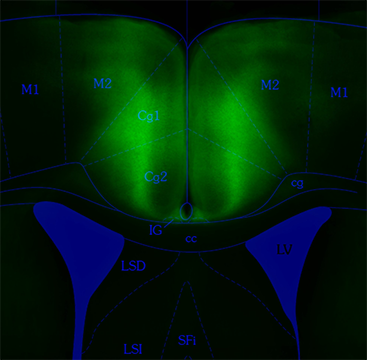NEW YORK – A Columbia neuroscience laboratory and a team of academic collaborators has received $9 million from the Aligning Science Across Parkinson's (ASAP) initiative to investigate how the early stages of Parkinson's disease impact the activities of groups of brain cells. Such research, which promises to fill a key gap in our understanding of the disease, could lead to much earlier diagnosis of Parkinson's and therapies for the disease.
"Understanding how the earliest stages of Parkinson's differ from the later stages has been especially challenging, because by the time someone is diagnosed, the disease has usually progressed past the first phase," said Rui Costa, DVM, PhD, director and CEO of Columbia's Zuckerman Institute and a core leadership co-investigator on the new project. "We want to understand, at the level of the brain circuitry, what is happening when the alterations from the disease are very early and the symptoms are very subtle, and how the disease and brain change over time."
Parkinson's disease is a progressive disorder that slowly disrupts the function of brain circuits controlling movement and other aspects of daily life, including sleep. For most of human history, Parkinson's has been rare, but this age-related disease has become the fastest growing neurological disorder in the world, in part because people are living longer due to factors such as increasing longevity. From 1990 to 2015, the number of people with Parkinson's doubled to more than 6 million, and this number is projected to double again to more than 12 million by 2040.
The three-year award from ASAP will help support research on a strain of mice that experiences movement problems and sleep disorders that progress in stages, similar to what happens in people with Parkinson's. By analyzing how different brain circuits of these mice gradually change over time to affect sleep, posture, locomotion and limb movements, the researchers will investigate whether early versus late stages of the disease are mediated by different circuits.
“It has been difficult to study whether different brain circuits are involved in the early and late stages of the disease because we didn't have progressive models of the disease,” said Dr. Costa, who is also a professor of neuroscience and neurology at Columbia’s Vagelos College of Physicians and Surgeons.
It has been difficult to study whether different brain circuits are involved in the early and late stages of the disease because we didn't have progressive models of the disease
Established to improve understanding of the biology underlying the onset and progression of Parkinson’s disease, ASAP emphasizes open science and collaboration. In that spirit, the new project brings together researchers from Columbia, Northwestern University, the University of Basel, UC Berkeley and Stanford.
“We have gathered people working on different brain circuits with different expertise, from physiologists who study the electrical activity of individual cells to computational biologists who build mathematical models of the brain,” said Dr. James Surmeier, PhD, Chair and Nathan Smith Davis Professor of Neuroscience at Northwestern University, who is the coordinating lead principal investigator on the project. “This new international team of top experts has never had the chance to work together before.”
The researchers hypothesize that in the earliest pre-diagnosis stage of Parkinson’s, there is a drop in levels of the brain chemical dopamine in a brain region key to movement and reward, the striatum. This impairs the learning and execution of precise sequences of movements but does not yet disrupt large-scale bodily motions.
As the disease progresses, degeneration of dopamine-producing cells becomes more widespread, leading to malfunction in the output of the basal ganglia, which serves as a hub for regulating movements and sleep. This could ultimately disrupt other brain circuits, leading to the debilitating symptoms observed in clinical-stage Parkinson's disease, such as rigidity.
“My lab has spent years studying the basal ganglia and understanding its role in moving the body,” said Dr. Costa. “Building on this work, and the work of our collaborators from across the world, our consortium is dedicated to accelerating progress on treating Parkinson’s disease.”
“Each team selected for the Collaborative Research Network brings unique expertise and perspective to ASAP’s mission of tackling key knowledge gaps in disease understanding through open science. We are proud to partner with Columbia University’s Zuckerman Institute on this innovative and impactful project that will position the field closer to new treatments for the millions living with and at risk of Parkinson’s disease,” said ASAP managing director Ekemini Riley, PhD.
The Michael J. Fox Foundation for Parkinson’s Research is ASAP’s implementation partner and issued the grant.
Award details are as follows:
“Distributed circuit dysfunction underlying motor and sleep deficits in a progressive mouse model of Parkinson’s disease” (Grant Application ID: ASAP-020551). Total award amount: $8,999,920.11 over three years.
D. James Surmeier, PhD, Coordinating Lead PI, Chair and Nathan Smith Davis Professor of Neuroscience, Northwestern University.
Rui Costa, DVM, PhD, Core Leadership Co-Investigator, Professor of Neuroscience, Columbia University
Silvia Arber, Core Leadership Co-Investigator, Professor of Neurobiology and Cell Biology, Biozentrum and the Friedrich Miescher Institute at the University of Basel, Switzerland
Yang Dan, PhD, Core Leadership Co-Investigator, Professor of Neurobiology, University of California Berkeley
Ann Kennedy, PhD, Core Leadership-Co-Investigator, Assistant Professor of Physiology, Northwestern University
Jun Ding, PhD, Paid Collaborator, Associate Professor, Stanford University
Other team members at Columbia: Akira Fushiki, PhD, Jaeeon Lee, PhD, Helena Seuffert, Mariana Correia.



